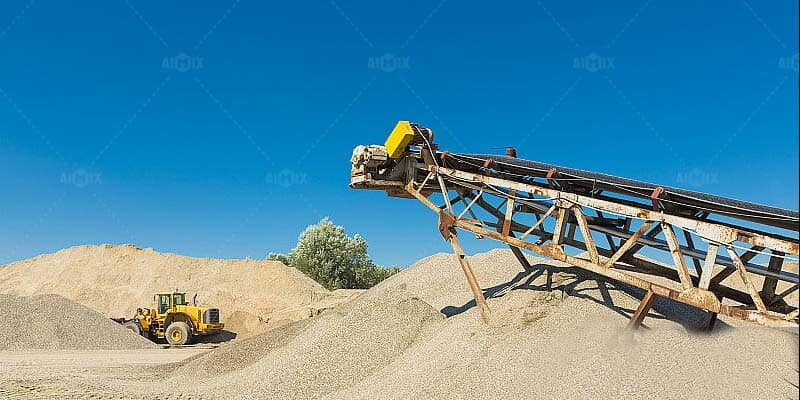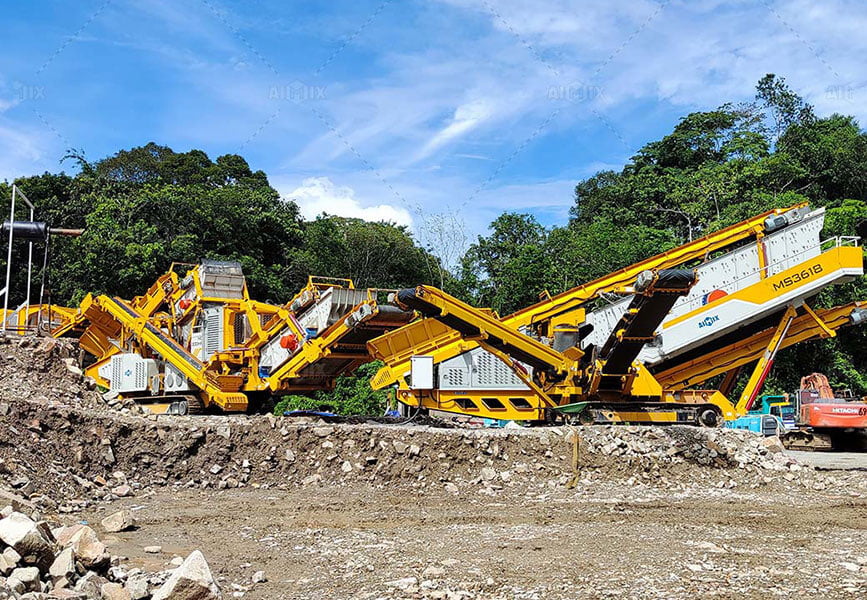When considering the price of a 200 TPH (tons per hour) stone crusher for your project, it’s essential to evaluate several factors that contribute to the overall cost. While the initial purchase price is an obvious concern, long-term costs such as installation, maintenance, and operational efficiency can impact your decision. Whether you're in the market for a low-budget crusher or an industrial-grade machine, the choice of equipment must align with your project needs, scale, and financial constraints. This article breaks down the key considerations when evaluating the 200 tph stone crusher price.
Key Factors That Influence the Price of a 200 TPH Stone Crusher
Quality and Brand
The price of a 200 TPH stone crusher can vary significantly depending on the brand and quality of materials used in construction. Premium brands tend to charge more upfront due to superior build quality, advanced features, and after-sales support. High-end crushers often feature robust designs that are built to withstand harsh conditions and require less frequent maintenance, making them ideal for large-scale operations. On the other hand, lesser-known or lower-quality brands may offer more budget-friendly options but at the cost of longevity and performance. It’s crucial to consider the brand reputation and the machine's reliability before making a purchase.
Technological Features and Efficiency
Another critical factor affecting the price of a 200 TPH stone crusher is the technological features incorporated into the design. More advanced models are equipped with cutting-edge technology that enhances operational efficiency, such as automated controls, energy-saving mechanisms, and improved crushing systems. These features, while increasing the initial price, can reduce the overall operational costs in the long run by optimizing fuel consumption, minimizing downtime, and maximizing output. When assessing a crusher's price, it’s essential to weigh the trade-off between advanced features and their potential return on investment.
Understanding the Total Cost of Ownership
Installation, Maintenance, and Operating Costs
Beyond the purchase price, the total cost of ownership must be evaluated. Installation costs can include transportation, site preparation, and any modifications needed to integrate the crusher into the existing infrastructure. Additionally, operational costs such as fuel consumption, wear and tear on components, and labor expenses should be factored into the budget. It's essential to understand the long-term cost of operating the equipment, especially when the stone crusher machine for sale is used in high-demand environments, as these costs can significantly impact the overall financial feasibility of the project. Longevity and Durability Considerations
When assessing the price of a 200 TPH stone crusher, considering the machine's longevity and durability is vital. Higher-quality crushers made from durable materials may require less frequent repairs and replacements, thus lowering the total cost over time. It's essential to take into account the expected lifespan of the crusher and compare it with cheaper alternatives that may need frequent servicing, leading to higher costs in the long run. By opting for equipment with a longer lifespan, you can reduce downtime and ensure a more consistent flow of materials, ultimately benefiting your project.
How to Compare Different Models for Your Project Needs
Assessing Project Scope and Output Requirements
Before diving into price comparisons, it's essential to assess your project’s scope and output requirements. A 200 TPH stone crusher may be overkill for small-scale projects but may be necessary for large-scale operations. Understanding the specific needs of your project, such as the required production rate, type of material to be processed, and operational hours, will help narrow down the list of suitable models. By choosing the right machine for the job, you can avoid overspending on unnecessary features and select a machine that meets your production goals.
Analyzing Warranty and After-Sales Support
Finally, it’s crucial to evaluate the warranty and after-sales support offered by the manufacturer. While a cheaper crusher may seem like a bargain, a lack of warranty or support services can be a significant risk if problems arise. A robust warranty and strong after-sales service, including spare parts availability and technical support, can make a considerable difference in ensuring the smooth operation of the crusher over its lifetime. Make sure to factor in these elements when evaluating the price of a 200 TPH stone crusher, as they can significantly affect the machine’s overall cost-effectiveness.
In conclusion, evaluating the price of a 200 TPH stone crusher is not as simple as comparing sticker prices. A thorough analysis of factors such as brand quality, technological features, total ownership costs, and after-sales support is essential in determining the best value for your project. By considering these aspects, you can make an informed decision that not only fits your budget but also ensures high performance and efficiency throughout your project’s lifespan.



